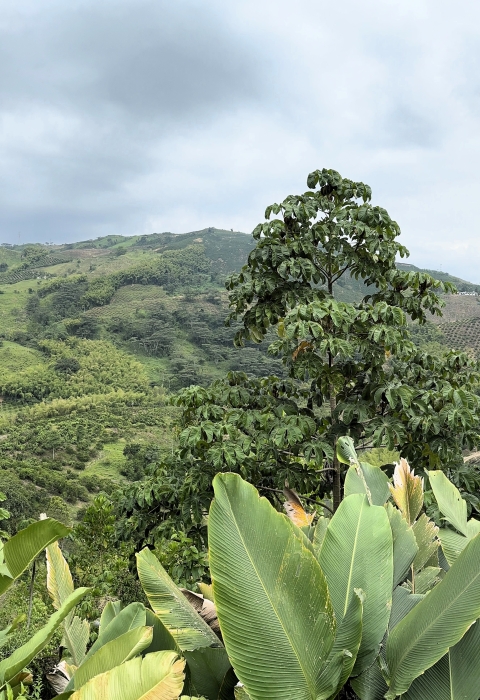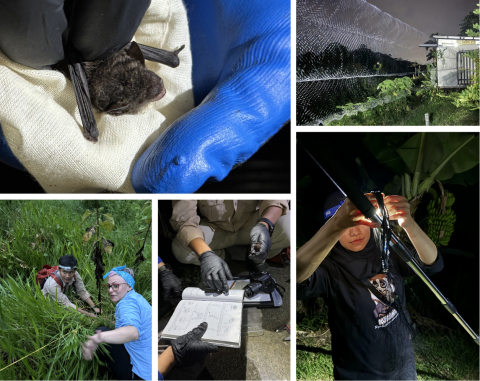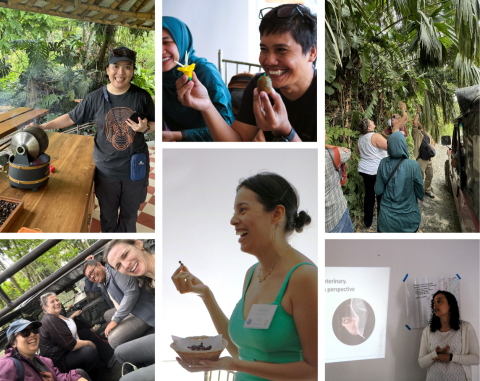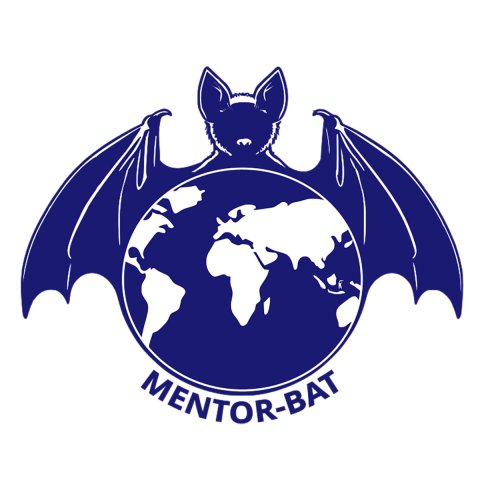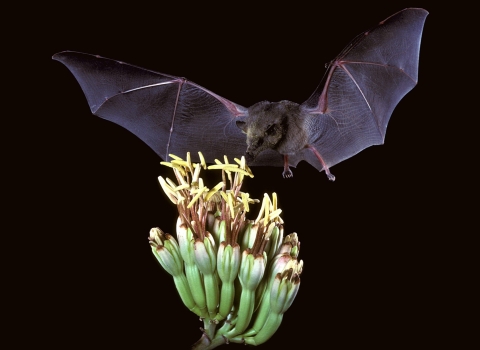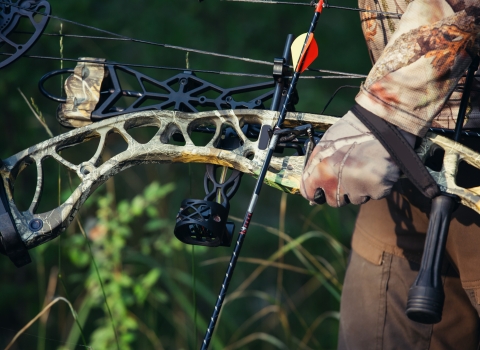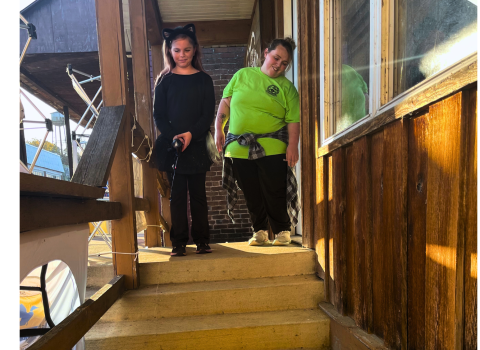High on a mountain in the tropical Andes of Colombia, headlight beams swing through the dark, bouncing off towering banana plants and revealing flashes of the delicate, nearly invisible mist net being unfurled across a road. Once the net is secured, the headlights switch off and voices descend to whispers in the dark, waiting for a bat to (safely) become caught in the net. After only a few minutes, the plan is successful – headlights shine once more and spotlight the hands quickly and deftly removing the world’s only flying mammal from the net. After measurements and a species identification, the bat is released to continue its nighttime search for food.
This tableau of MENTOR-Bat participants working together to safely capture, identify, and release bats was the fruition of nearly two years of planning by the U.S. Fish and Wildlife Service (Service) and Bat Conservation International (BCI) staff. MENTOR-Bat, an 18-month MENTOR program, brings together a team of 9 Fellows and 3 Mentors from Cameroon, Colombia, and Indonesia to apply One Health approaches to promote healthy environments where bats and humans coexist with reduced risk of disease transmission.
From April 4 – 19, 2024, the first in-person workshop of MENTOR-Bat took place in Manizales, Colombia. The week began with an opening ceremony, which included warm welcome messages from BCI and Service leadership and alumni of the MENTOR program. Fellows, who are early career conservationists, and Mentors, who are experienced bat specialists, shared about themselves, their diverse backgrounds (which include virology, veterinary science, environmental education, bat research, and cave tourism), and their hopes for their MENTOR experiences. As hosts of the first workshop, the Colombian cohort shared traditional Colombian snacks, including guava candy, cheesy crunchy crackers, amazing chocolate, and hormiga culona, or roasted “big-bottomed” ants (they have a toasted nutty flavor!).
The week’s discussion and presentation topics included bat biology, One Health theory and application, communication strategies, and country-specific challenges and opportunities for improving bat-human coexistence. Bat Appreciation Day, which fell on the Wednesday of the workshop on April 17th, afforded a serendipitous opportunity to discuss leveraging holidays and appreciation days to promote conservation initiatives. Fellows began thinking about how they might design communication and engagement strategies for Bat Week, which takes place annually over Halloween in late October, and next year’s Bat Appreciation Day. The Fellows and Mentors also built connections with each other through multiple team-building exercises, including impromptu networking and breakout groups.
Sessions were punctuated by spontaneous language exchange, sharing photos of kids and pets, and lots of laughter. A mid-week trip to a nearby coffee farm provided even more opportunities for connection: from bouncing down jungle roads in the back of Jeeps to roasting (and maybe briefly setting on fire...) our own coffee beans, there were plenty of memorable moments to make the first workshop a great one!
Having set the bar high for the remainder of the program, the Fellows and Mentors are now participating in daily virtual learning and training. In August, the Indonesian cohort plans to host the second in-person workshop that will focus on conservation project planning and proposal development. During the final portion of the MENTOR-Bat program, Fellows will spend a year implementing One Health-focused bat conservation pilot projects in their regions and, in September 2025, will present the outcomes at a final workshop and MENTOR Conservation Leadership Forum in Cameroon.
